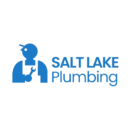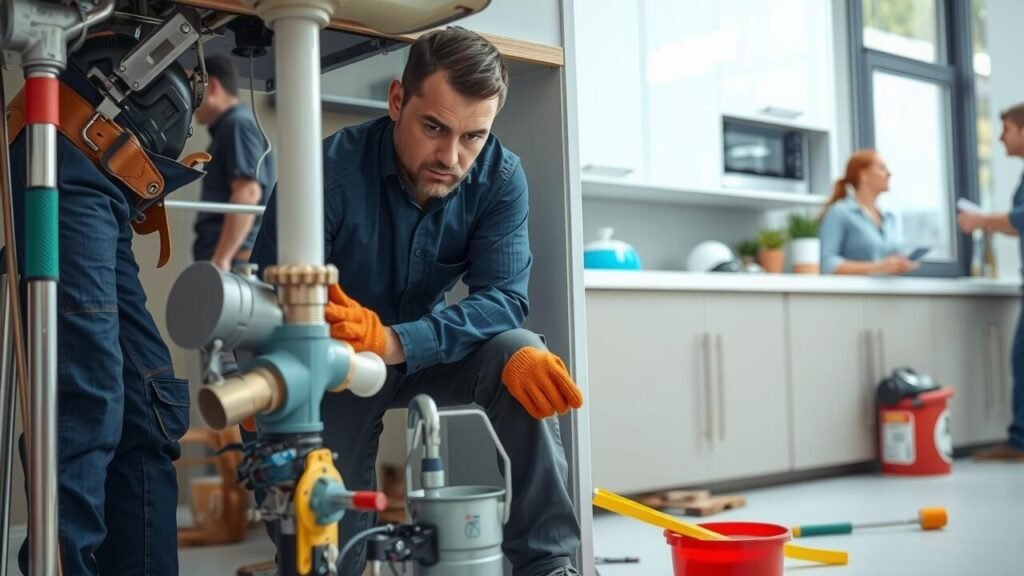Preparation for an Emergency Plumbing Call
When faced with a plumbing emergency, preparation can significantly reduce stress and expedite the solution. Knowing the right questions to ask can help you choose the best professional for the job. Researching terms like “Emergency Plumber near me” allows you to quickly identify local professionals who specialize in urgent situations. Keep a list of reputable plumbers handy, including their contact information and hours of operation, so you can act without delay when issues arise.
Gathering key information before making the call is also crucial. Note the specifics of the issue, including the location and severity of the problem. If water is leaking, determine where it is coming from and if you can turn off the main water supply. This proactive approach not only aids the plumber in diagnosing the situation but also helps you mitigate further damage while waiting for their arrival.
Information to Provide When Calling
When contacting an emergency plumber, it is essential to provide detailed information about the issue at hand. Start by describing the specific problem, whether it’s a burst pipe, overflowing toilet, or a malfunctioning water heater. Mention any immediate effects, such as flooding or lack of water pressure. This information will help the plumber gauge the severity of the situation and prepare accordingly before arrival.
Additionally, share your location clearly, especially if you have searched for an “Emergency Plumber near me.” Provide any accessible landmarks or specific directions to your home to ensure a quick response. Inform them about any prior plumbing issues or ongoing repairs. This background can assist the plumber in diagnosing the problem more efficiently.
What to Expect During the Wait
Waiting for an emergency plumber can be a stressful experience, especially when dealing with a significant plumbing issue. As you anticipate their arrival, it’s essential to stay as calm as possible. You may hear sounds of water leaking or gushing, which can add to the urgency. Keeping your phone close at hand is crucial, as the plumber may call to provide an estimated arrival time or ask for further details about the problem. If you posted a search for “Emergency Plumber near me,” you can expect a professional to prioritize your call, but preparation is key.
During this time, assess the situation carefully and take any necessary precautions to minimize damage. If it’s safe to do so, try to locate the main water shut-off valve and turn it off to prevent additional water from causing more damage. If the issue involves a toilet overflow or a clogged sink, you can use towels or buckets to catch any escaping water. Understanding what to expect during the wait helps you manage the situation effectively until the emergency plumber arrives.
Temporary Solutions Before the Plumber Arrives
When faced with a plumbing emergency, taking immediate action can help mitigate damage while you wait for assistance. If there is a leak, locate the source and turn off the water supply to prevent further flooding. Using towels or buckets to catch any dripping water can keep your space dry. For a clogged drain, try using a plunger to see if you can clear the obstruction temporarily. Keep in mind that these are short-term fixes meant to manage the situation until the emergency plumber near me arrives.
Another effective solution involves addressing minor issues before the plumber gets there. For instance, if you experience an overflowing toilet, turn off the water supply valve behind the fixture to halt the flow. If hot water is leaking from a heater, turning down the thermostat can reduce pressure. By performing these quick actions, you not only protect your property but also create a safer environment for the plumber to work.
When to Call for Non-Emergency Plumbing Issues
When plumbing issues arise, it can be challenging to determine their urgency. Non-emergency plumbing problems include minor leaks, slow drains, or discolored water. These situations typically do not cause immediate damage or pose safety risks. Homeowners can often manage their daily routines without significant disruption while waiting for a scheduled appointment with a plumber. Addressing these issues proactively can prevent them from developing into more serious concerns.
Knowing when to seek the assistance of a professional can save time and money. If you notice issues like a running toilet or a faucet that drips continuously, these are generally not emergencies. Contacting an “Emergency Plumber near me” for these types of problems may not be necessary. Instead, reaching out to a regular plumbing service can provide timely assistance while allowing you to maintain peace of mind and avoid unnecessary costs.
Identifying Problems That Can Wait
Some plumbing issues may not require immediate attention, allowing homeowners to schedule repairs at a more convenient time. Minor leaks that do not significantly affect water flow can often be postponed. Problems such as a slow-draining sink or a toilet that occasionally runs may also be suitable for non-emergency service. Homeowners should consider the severity of the issue, particularly whether it poses a risk of water damage or affects daily activities.
When assessing whether to wait for repairs, it’s important to observe the symptoms closely. A dripping faucet might be annoying but generally does not necessitate an urgent call. If homeowners find themselves in doubt, they can search for “Emergency Plumber near me” to identify local services that offer both urgent and routine plumbing solutions. Taking the time to evaluate the situation can save stress and allow for more planning when scheduling a visit.
FAQS
How quickly can I expect an emergency plumber to arrive?
The response time for an emergency plumber can vary, but typically, you can expect them to arrive within 30 minutes to 2 hours, depending on their location and your area’s traffic conditions.
What information should I provide when calling an emergency plumber?
When calling an emergency plumber, provide your name, address, a brief description of the plumbing issue, any immediate hazards, and your contact information for follow-up.
Are there any temporary solutions I can implement while waiting for the plumber?
Yes, you can take temporary measures such as turning off the main water supply, using buckets to catch leaks, or placing towels around the affected area to minimize water damage until the plumber arrives.
What kind of plumbing issues qualify as emergencies?
Plumbing emergencies typically include severe leaks, burst pipes, overflowing toilets, sewage backups, or any issue that poses a risk to health and safety or causes significant property damage.
How can I determine if my plumbing issue can wait for a non-emergency service?
Non-emergency plumbing issues usually involve minor leaks, slow drains, or routine maintenance that does not pose immediate risk or damage. If the problem doesn’t disrupt your daily activities or cause further damage, it may be best to wait for a regular service call.

